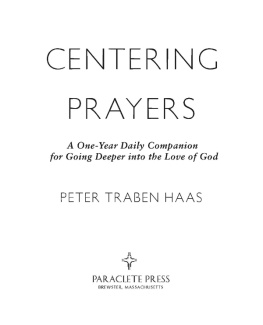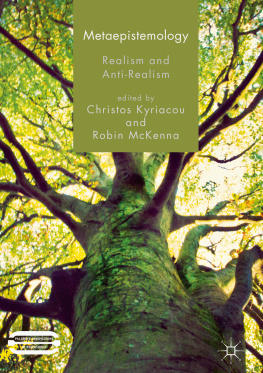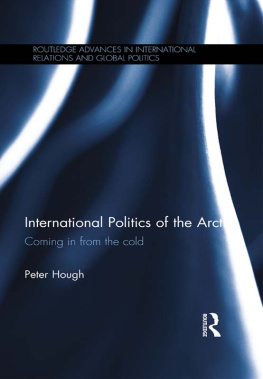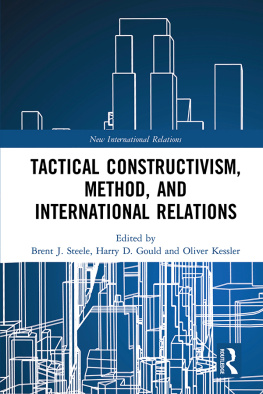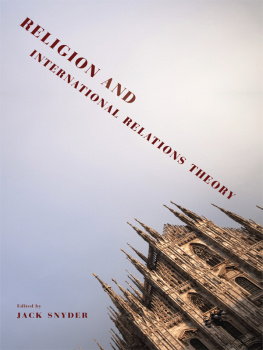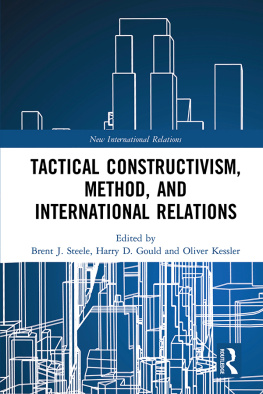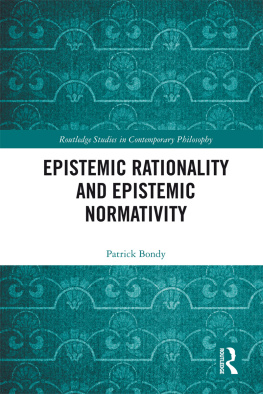EPISTEMIC COMMUNITIES, CONSTRUCTIVISM, AND INTERNATIONAL ENVIRONMENTAL POLITICS
Epistemic Communities, Constructivism, and International Environmental Politics brings together 25 years of publications by Peter M. Haas. The book examines how the world has changed significantly over the last 100 years, discusses the need for new, constructivist scholarship to understand the dynamics of world politics, and highlights the role played by transnational networks of professional experts in global governance. Combining an intellectual history of epistemic communities with theoretical arguments and empirical studies of global environmental conferences, as well as international organizations and comparative studies of international environmental regimes, this book presents a broad picture of social learning on the global scale.
In addition to detailing the changes in the international system since the Industrial Revolution, Haas discusses the technical nature of global environmental threats. Providing a critical reading of discourses about environmental security, this book explores governance efforts to deal with global climate change, international pollution control, stratospheric ozone, and European acid rain. With a new general introduction and the addition of introductory pieces for each section, this collection offers a retrospective overview of the authors work and is essential reading for students and scholars of environmental politics, international relations and global politics.
Peter M. Haas is a Professor of Political Science at the University of Massachusetts Amherst, USA.
Bringing together some of his most important writings during the last quarter of a century, one of the leading scholars of epistemic communities and environmental politics offers a modestly hopeful picture of gradual social learning under conditions of structural change. Scholars interested in some of the best thinking about a vitally important issue in world politics will rely on this collection for many years to come.
Peter J. Katzenstein,Walter S. Carpenter, Jr. Professor of International Studies, Cornell University, USA
This volume brings together many of Peter Haass papers along with a new and lucid introduction tracing the epistemic communities research program that he has pioneered over the last quarter-century.
Robert O. Keohane,Professor of International Affairs, Princeton University, USA
Peter Haas has pioneered the study of advocacy groups with claims to consensual knowledge (epistemic communities) in shaping international cooperation and institution-building. Moreover, he has been among the first to examine international environmental cooperation from a rigorous theoretical perspective. This timely collection of his essays showcases the intellectual development of one of the giants in the field.
Thomas Risse,Professor of International Politics, Freie Universitt Berlin, Germany
EPISTEMIC COMMUNITIES, CONSTRUCTIVISM, AND INTERNATIONAL ENVIRONMENTAL POLITICS
Peter M. Haas
First published 2016
by Routledge
2 Park Square, Milton Park, Abingdon, Oxon OX14 4RN
and by Routledge
711 Third Avenue, New York, NY 10017
Routledge is an imprint of the Taylor & Francis Group, an informa business
2016 Peter M. Haas
The right of Peter M. Haas to be identified as author of this work has been asserted by him in accordance with sections 77 and 78 of the Copyright, Designs and Patents Act 1988.
All rights reserved. No part of this book may be reprinted or reproduced or utilised in any form or by any electronic, mechanical, or other means, now known or hereafter invented, including photocopying and recording, or in any information storage or retrieval system, without permission in writing from the publishers.
Trademark notice: Product or corporate names may be trademarks or registered trademarks, and are used only for identification and explanation without intent to infringe.
British Library Cataloguing in Publication Data
A catalogue record for this book is available from the British Library
Library of Congress Cataloging in Publication Data
A catalog record for this book has been requested
ISBN: 978-1-138-85854-1 (hbk)
ISBN: 978-1-138-85855-8 (pbk)
ISBN: 978-1-315-71790-6 (ebk)
Typeset in Bembo
by Book Now Ltd, London
For Julie and David
CONTENTS
Peter M. Haas
PART I
Ontology and historical background
Peter M. Haas
Peter M. Haas
Peter M. Haas
Peter M. Haas
PART II
Regimes and governance patterns
Peter M. Haas
Peter M. Haas
Peter M. Haas
Peter M. Haas
PART III
Institutions and learning
Peter M. Haas
Peter M. Haas
Peter M. Haas
Peter M. Haas and Ernst B. Haas
PART IV
Effectiveness
Peter M. Haas
Peter M. Haas
PART V
Science policy
Peter M. Haas
Peter M. Haas and Casey Stevens
PART VI
Conclusion
Peter M. Haas
Peter M. Haas
This volume presents a collection of previously published works. Most were intended for diverse policy audiences, and published in a wide array of locations. Most share a common empirical focus on global and transboundary environmental risks, and a common analytic focus on the social construction of collective governance responses, focusing in particular on the interplay between organized scientific knowledge and international institutions. The new introduction provides a self-reflective intellectual history of research on epistemic communities.
A common parable in the 1970s was that of the frog and warming water. If the frog was put in hot water it would hop right out. But if it was put in cold water and the water was allowed to gradually boil, the frog would cook and die. Human societies in a new globalized erawhat is now called the Anthropoceneare like the frog. If they dont realize what is going on, they are cooked, an analogy which seems less literary as climate change becomes more acute. But the core question is how do societies recognize the problems they face, and how can accurate and timely responses be encouraged? Thus the study of international environmental politics is intimately connected with the study of governance and learning.
Addressing international environmental issues is vitally important for human survival. But we also are learning that environmental issues are tightly coupled to other issues on the international agenda. Effective global governance of the environment is necessary in order to preserve a livable future for the worlds population. International environmental issues also provide a critical issue areaa laboratoryfor understanding the broader dynamics of other issues on the international agenda as well. Many of the analytic properties of environmental issues (the proliferation of non-state actors, the causal coupling between issues, and the emergence of complexity and uncertainty as systemic conditions) presage shifts in world politics from globalization.
Environmental concerns serve as the leading edge of contemporary world politics in two ways. First, they were the earliest issue to be widely recognized and governed in terms of its complexity and uncertainty. Thus by understanding the politics of international environmental politics we are better positioned to understand and govern other issues as well. Second, because environmental issues are linked to other issues, by starting with the environment decision makers move towards governing causally coupled issues also.




